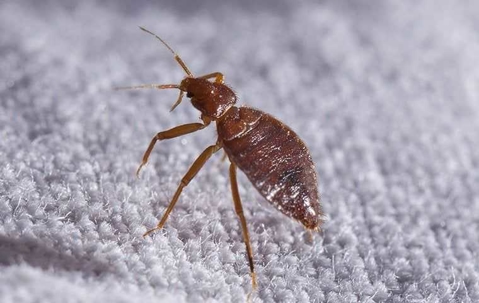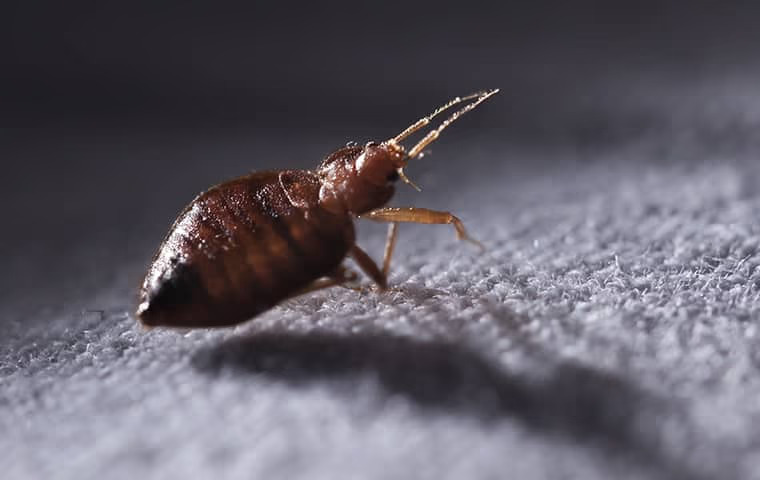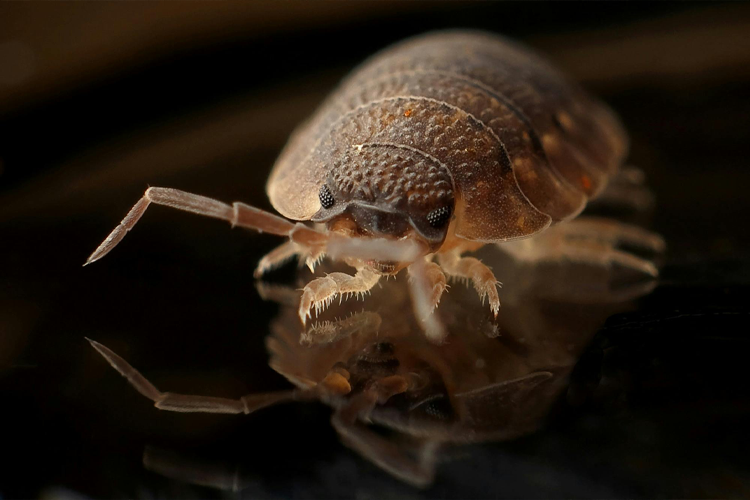Expert Kings Pest Control Cincinnati: Your Trusted Exterminators
Expert Kings Pest Control Cincinnati: Your Trusted Exterminators
Blog Article
Kinds of Pest Control: Which Approach Is Right for Your Infestation?
When faced with an insect invasion, the choice of a proper technique for bug control is critical in properly taking care of the scenario. By discovering the numerous kinds of parasite control approaches readily available, people can make educated decisions tailored to their unique situations, ensuring a more efficient and sustainable outcome in pest eradication.
Chemical Pest Control
Chemical pest control entails the usage of synthetic or naturally derived chemicals to take care of and remove pest populations efficiently. This method is generally made use of in agriculture, forestry, and residential setups to deal with a variety of pests, consisting of bugs, rodents, and weeds. The use of chemical pesticides can provide fast and targeted services to pest infestations, making it a preferred option for many people and services.
One of the crucial advantages of chemical parasite control is its capability to swiftly get rid of pests, lowering the danger of damages to crops, residential property, and human health. By making use of particular chemicals that target certain insects, this approach can successfully control invasions while decreasing damage to beneficial organisms and the environment when used correctly.
Nevertheless, using chemical insect control additionally raises worries about prospective damaging effects on non-target types, water resources, and human health. It is vital to adhere to safety standards, use chemicals responsibly, and think about different parasite control methods to lessen these threats and ensure sustainable bug monitoring techniques.
Biological Insect Control
Organic bug control, likewise understood as biocontrol, utilizes living microorganisms to decrease and manage parasite populaces naturally. By using the parasite's all-natural predators or pathogens, organic bug control provides a sustainable and eco pleasant service to pest management.

Mechanical Bug Control
Making use of physical and hands-on approaches to take care of pest populations, mechanical bug control supplies an alternative method that does not rely upon making use of living microorganisms or synthetic chemicals. This method includes using obstacles, catches, or various other tools to physically prevent or remove pests. By blocking pest entrance factors or establishing up catches to capture them, mechanical parasite control can effectively decrease infestations without introducing chemicals into the atmosphere.
One typical example of mechanical insect control is the use of mesh screens on doors and windows to avoid bugs from going into buildings. This easy yet efficient technique serves as a physical barrier, keeping pests out while allowing for imp source correct ventilation. Additionally, devices like mousetraps, fly swatters, and ultrasonic repellents fall under the mechanical parasite control group.
While mechanical bug control techniques can be labor-intensive and need regular monitoring and upkeep, they supply a lasting and ecologically friendly service for managing parasite problems. By integrating different mechanical strategies, homeowner can produce an extensive pest control approach that lessens reliance on chemical pesticides.
Physical Parasite Control

Some common physical insect control techniques consist of using obstacles such as nets or screens to avoid bug access, traps to capture and eliminate pests, and hand-picking to literally remove insects from plants or structures. In addition, strategies like heat treatments can be used to control insects like bed insects by increasing the temperature to levels that are lethal to the insects.
Physical insect control is especially helpful in integrated insect management (IPM) techniques, where multiple pest control methods are combined for effective parasite monitoring while decreasing the usage of chemicals. By making use of pest control solutions physical bug control methods, individuals can efficiently deal with pest infestations with marginal ecological effect.
Integrated Insect Management
When applying physical parasite control techniques as part of pest monitoring methods, Integrated Insect Management (IPM) becomes a detailed method that leverages various strategies to successfully manage pest populaces. IPM concentrates on long-term avoidance of bugs through a mix of biological, social, physical, and chemical devices tailored to details insect issues. By incorporating numerous control techniques, IPM aims to decrease the dangers connected with bugs while also lowering reliance on chemical remedies.
One secret facet of IPM is the emphasis on surveillance and evaluating pest populations to determine one of the most appropriate control techniques. This proactive technique allows for early treatment and targeted strategies, causing more effective parasite administration. In addition, IPM promotes eco-friendly practices by prioritizing non-chemical control approaches and only utilizing chemicals as a last option.
Conclusion

By making use of the bug's natural killers or pathogens, organic bug control provides a eco pleasant and sustainable option to pest management. - Kings exterminator cincinnati
Making use of physical and hands-on methods to take care of insect populations, mechanical bug control offers an alternate strategy that does not depend on the usage of living organisms or synthetic chemicals.A reliable method to taking care of pest populations click to read without counting on chemical or biological approaches includes the usage of physical parasite control methods.When executing physical parasite control methods as part of parasite administration approaches, Integrated Pest Administration (IPM) arises as a comprehensive technique that leverages numerous techniques to successfully regulate pest populations. Chemical insect control includes the usage of chemicals, biological insect control uses all-natural killers, mechanical bug control entails physical obstacles, physical parasite control consists of capturing or getting rid of pests, and integrated pest management combines multiple methods for a holistic method to pest control.
Report this page